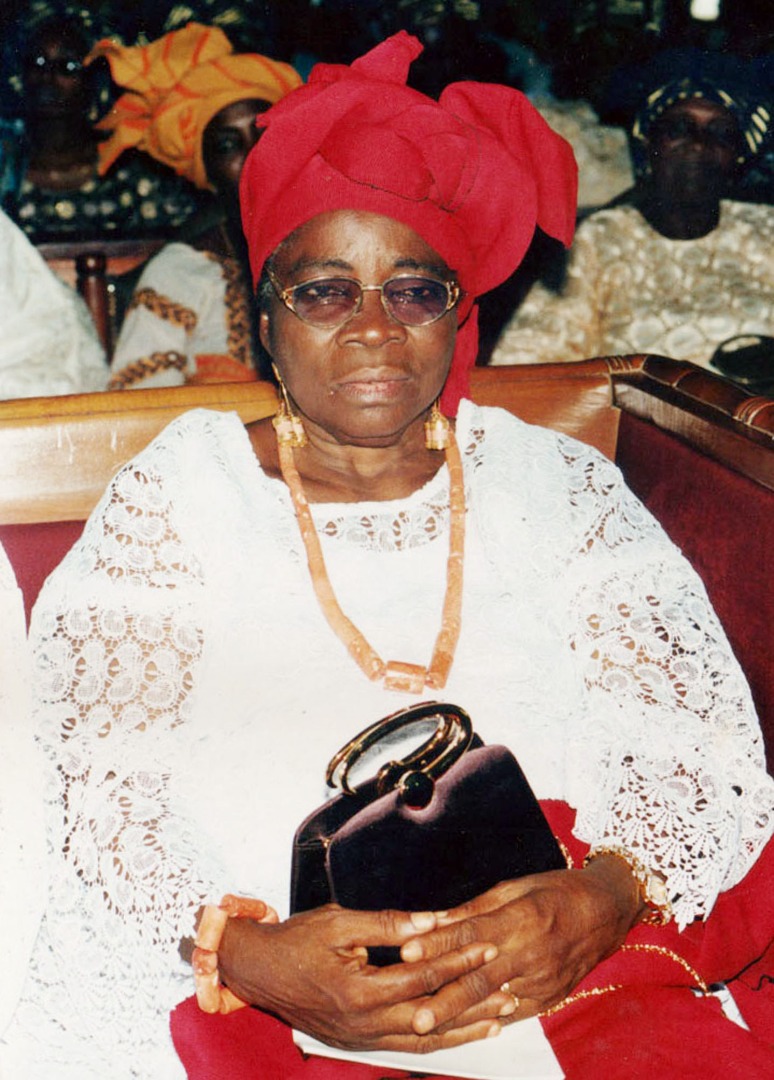By Tunde Olusunle
I would most fittingly have earned the citizenship of any country in Europe and the Americas, if I had lived the duration of time I did in Benin City, in any such nation. As a little boy, I attended the old St. Joseph’s Primary School for my first school leaving certificate. Samuel Osaigbovo Ogbemudia, a Brigadier in the Nigerian Army at the time, celebrated as the architect of the erstwhile Midwestern State, was governor. When I began secondary school at the very highly competitive and respected Immaculate Conception College, (ICC), a Catholic all-boys institution, George Agbazika Innih, then a Colonel, was chief executive of the state.
Among very many other distinguished alumni of ICC, by the way, is the incumbent Benin monarch, Omo N’Oba N’Edo N’Ogidigan Uku Akpolokpolo Ewuare II. At graduation after my West African School Certificate Examination, (WASCE), Ambrose Folorunso Alli, reputed to be Nigeria’s first indigenous professor of pathology, was the democratically elected civilian governor in the truncated Second Republic. Instructively, the Ambrose Alli administration, constituted by the Unity Party of Nigeria, (UPN), founded by Jeremiah Obafemi Awolowo, GCFR, the erstwhile Premier of South West Nigeria, paid for our WASC examination fees, consistent with the “free education” mantra of the UPN. Nobody asked about my state of origin or my religion.

Between the neighbourhood where my parents lived and the schools I attended, I made quite a number of friends. Our last leased accommodation before my parents developed a place of their own, was at Eresoyen Street, abutting Urubi Street, in the New Benin district. The Eresoyen house belonged to the famous Uzamere family in the city. Our landlords had their own section of the mini-estate, which engendered robust interaction and camaraderie between us and the Uzameres, among select families. Ehigie Edobor Uzamere, who represented Edo South senatorial zone in the National Assembly, between 2007 and 2015, was our big brother in the estate. He left us for the US to study architecture, but remained an inspiration for us youngsters. It was a measure of our acculturation into our host community, that one of my younger siblings, was christened Eghosa, (God’s own), at birth.
Just a few yards from our house was Oziegbe Street, where the Ehigiator family, lived. “Iye Ehigiator” as we fondly referred to the matriarch of the family, Alice Aimierovbiye Ehigiator, was a most resourceful and versatile entrepreneur. She moved around the country very regularly, sourcing raw materials which she supplied to Livestock Feeds Limited, where my father, Jacob Adeniyi Olusunle, was General Manager, among other outlets. Her children and my siblings would become very close, bonding even as a family.
Osabuohien, (of blessed memory), the younger son of ‘Iye’, was inspired to join me in ICC on account of the quality all-round instruction we received under the leadership of Joseph Odidi Itotoh, our iconic school principal in my time. Iye in fact nicknamed one of my younger sisters “Sleepy-Sleepy.” Susan (my sister), was famous for dozing off and descending into deep sleep, whenever either family came visiting. That was how close-knit our families were. Osabuohien indeed found himself in the same house, “Bishop Kelly,” with me, upon his admission into ICC. Strictly on merit, I recommended him to succeed me as House Prefect, en route graduation from the school. It was part of the leadership training we underwent those good, old days of yore, being able to take informed, objective, critical decisions, even at that young age.
Friday January 14, 2022, I received a message from my sister, Ibironke Osasere-Omoruyi, conveying the news of Iye’s departure. I was heartbroken. Iye departed, edging close to the club of nonegenarians, effectively at an age the Binis refer to as ‘Edede’, an old woman well above 80 years. This in African culture, calls for revelry. I was downcast, however, because I failed to keep a promise I made to her, three years before her exit. Whenever we spoke, she always challenged me to come check up on her, as she was ageing and edging towards her transition. And I always reassured her I would visit. Sadly, I never did.
Indeed, the last time I visited ‘Edede’ in Benin City in the company of my wife and siblings, she took a while between her room and joining us in her living room where we were seated. I requested one of my sisters to check up on ‘Edede’, to be sure all was well. Deaconess Florence Siyanbade, my sister jocularly reported when she returned, that the old woman was taking it easy with her ‘Keke Napep’. ‘Edede’ was getting around with a quadruped, a four-legged walking aid made of aluminium. The minimum I could do when I learnt she passed January 13, therefore was to honour her memory by attending the ceremonies commemorating her exit. They were scheduled for Thursday March 30 to Sunday April 3, 2022.
It was humbling to have been personally received at the Benin airport, evening Friday April 1, by Senator Uzamere, our own “Bro Ehigie,” who was also going to participate in the rites of passage for ‘Edede’, a personality he revered as a big aunt. His connectedness with his constituents was so very obvious as he exchanged banters with airport drivers, in the car park, when we walked by to his car. And they responded very warmly and enthusiastically. One of the drivers told him in Bini, that times are tough. Uzamere retorted that the situation was non-sparing of anyone. He enjoined him and everyone to gird their loins for the 2023 elections.
Wherever she is, ‘Edede’ would have been very proud of the manner she was celebrated. The lineup of events commenced as scheduled, Wednesday March 30, (which incidentally was my birthday), with a Service of Songs at her favourite home in Oziegbe Street, New Benin. She was interred in one of her properties in Ekenwan District, also in Benin City, Thursday March 31. Both events were essentially sombre and exclusive, the family reserving the grand ceremony for Saturday April 2, when invited guests across the country and abroad, were expected to join in. A thanksgiving service was also scheduled for Sunday April 3 at the Assemblies of God Church, next door to Edede’s house.
Horatio Marquee in Edo Hotel on Okada Avenue, in GRA, Benin City, abutting the sprawling, street-long residence of the famous multibillionaire entrepreneur, Gabriel Osawaru Igbinedion, the Esama of Benin, hosted the very grand reception commemorating ‘Edede’s departure. The quality of attendance was reflective of the very high esteem ‘Edede’ was held in her home community, and the goodwill her children command. Dignitaries included Uzamere; his successor in the Senate, Matthew Uroghide (Senator representing Edo South) and his wife Pastor (Mrs) Obiageli Urhoghide; Prof (Chief) Osato Giwa-Osagie and HRH Edward Obamogie, the ‘Enogie’ of Ugiamwen.
There were also Engr. Osato Edo-Osagie; Hon Osahon Osemwota; Hon. Justice and Mrs Ohimai Ovbiagele; Hon. Justice Okeaya Inneh and Hon. Orobosa Omo-Ojo. Hon. Victor Enoghayin; Prince Felix and Princess Violet Obamogie; Prince Babasola Jaiyeola; Stanley Osadiaye; Allan Omorogbe and the Osaghaes equally attended the event. Messrs Oluwole Uzzi (of the Independent National Electoral Commission, INEC) and Gabriel Obaseki, graced the occasion. Prominent female entrepreneurs who attended include Winnie Atawodi, (Walsa Ltd); Funmilayo Obisan, (Kajola Group of Companies); Wunmi Odutola (Queensdrive Estate Ltd), as well as Yvonne Ezekiel and Amaka Agbakoba-Onyejiaya ( both of Olisa Agbakoba and Associates); Nikki Khiran (Nikki Khiran Couture) and Salamatu Aderinokun (First Marina).
Alice Airmierovbiye Ehigiator (nee Uwagboe), was born in February 1935 in Uhunwode local government area of Edo State. She attended Eweka Memorial Primary School, Iyaro, Benin City, from 1942 to 1950, where she obtained her Standard Six Primary School Certificate. She subsequently attended the Midwest Secretarial and Stenographic Institute, also in the Edo State capital. She took up employment with the United African Company, (UAC). Alice Ehigiator served as Secretary to the Chairman of the defunct Midwest Nigeria Development Commission, (MNDC), rising to managerial positions in the mid-1960s. She got married to Elisha Omodamwen in 1957, with whom she had two children, Osabueki and Edoghogho. The marriage was dissolved a few years later, and she got married to a young military officer at the time, Felix Ehigiator, who rose to the rank of Colonel before his retirement. Together, they had two children, Osabuohien and Joy.
In the early 1970s, “Edede’, with financial support from her mother, ventured into business. She became sole distributor of Top Feeds Ltd, Oghorode, Sapele, present day Delta State, set up in 1968, which produced a wide range of products for livestock farmers. She subsequently became a supplier of raw materials notably oyster shells, maize, groundnut cake and similar condiments, both to Top Feeds, and the competing Benin factory of Pfizer Livestock Feeds Ltd, established in 1972. Her business required quite some moving around the country, in search of the raw material requirements of her patrons, which tested her energy and perseverance as a woman. A courageous, dogged, tireless and resourceful lady, she was, on the flip side, very receptive, accommodating, motherly and kind.
Most unfortunately, she lost her second son, Osabuohien, my bosom friend and brother, a graduate of Engineering from the University of Benin, in 1988. I travelled from Ilorin where my parents have lived since leaving Benin City in 1980,
to pay condolences on behalf of my family. I met a thoroughly shattered, devastated and broken ‘Edede’, a distinct shadow of her true self. She had long nicknamed me gbagbati man in my younger days, her own definition of my outgoing, friendly, boisterous, humorous essence, an alias she couldn’t muster on that visit. I wrote a poem titled “Not yet adieu, Osa,” dedicated to Osabuohien, which was published in my maiden collection of poetry, Fingermarks, released in 1996. That she survived nearly 35 years after tragic episode is testament to the goodness of God.
‘Edede’ Alice Aimierovbiye Ehigiator who transited at 87 years of age January 13, 2022, is survived by three children, Osabueki Omodamwen, Edoghogho Agbakoba and Joy Fashesin-Souza; six grandchildren; two great grandchildren; two sons-in-law; one daughter-in-law and a host of relatives. These do not preclude a host of us other children who were privileged to meet her while she was here, and who were variously impacted by her life and times. We will miss her smile and matriarchal warmth. She was indeed a “Phenomenal Mum,” as Edoghogho rightly put it. May her beautiful soul rest in the bosom of our Lord, Amen.
Tunde Olusunle, PhD, poet, journalist, author and scholar, is a Member of the Nigerian Guild of Editors, (NGE).



